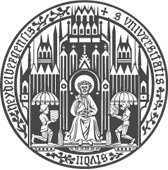
Developments in Natural Language Generation
Kursbeschreibung
| Studiengang | Modulkürzel | Leistungs- bewertung |
|---|---|---|
| BA-2010[100%|75%] | CS-CL | 6 LP |
| BA-2010[50%] | BS-CL | 6 LP |
| BA-2010[25%] | BS-AC, BS-FL | 4 LP |
| BA-2010 | AS-CL | 8 LP |
| Master | SS-CL, SS-TAC | 8 LP |
| Dozenten/-innen | Anette Frank |
| Veranstaltungsart |
|
| Sprache | English |
| Erster Termin | 17.04.2023 |
| Zeit und Ort | Montags, 13:15-14:45, INF 328 / SR 25 |
| Commitment-Frist | tbd. |
Teilnahmevoraussetzungen
Kommentar
- BA Computational Linguistics (advanced students)
- MA Computational Linguistics
- MA Data and Computer ScienceMA Scientific Computing
Leistungsnachweis
- Active participation including assignments;
- Presentation;
- Project, second presentation or other agreed forms of homework
Inhalt
Natural Language Generation (NLG) is a key functionality for many NLP applications
which may be grounded in purely linguistic or in multimodal, e.g., visual-linguistic
contexts. Typically, language generation is conditioned on textual inputs, as in
interactive question-answering or dialogue settings, or in text rewriting tasks (e.g.,
summarization, text simplification or style transfer). In restricted domains, NLG can
also be data-driven. Here, the generated language is conditioned on structured inputs,
such as database query results, domain knowledge graphs, or internal states of artificial
agents that interact with their environment and with humans.
NLG methods have been revolutionized through the use of autoregressive large pre-
trained language models (LLMs). Yet, despite their stunning versatility in generating
high-quality texts, we are still left with important research questions to be solved:
In the seminar we will review different varieties of language model types, exemplified by
specific NLP tasks, and how to measure their performance. We will focus on methods
that aim to control NLG systems in specific ways, so that their output is valid, faithful
and consistent, to enhance their trustworthiness and usefulness. This includes the
interaction with symbolic knowledge resources (e.g., by search, joint encoding) and
inference methods. We will also investigate ways of using NLG methods as a means
to control the validity of system predictions, to deal with complex tasks that go beyond
learning statistical regularities of language.
Topics will include:
Early parts of the seminar will be introductory lectures, to provide overview and
to create common ground. We will then read and discuss selected papers with
presentations and discussion rounds.
Seminarplan
| Datum | Sitzung | Materialien |


